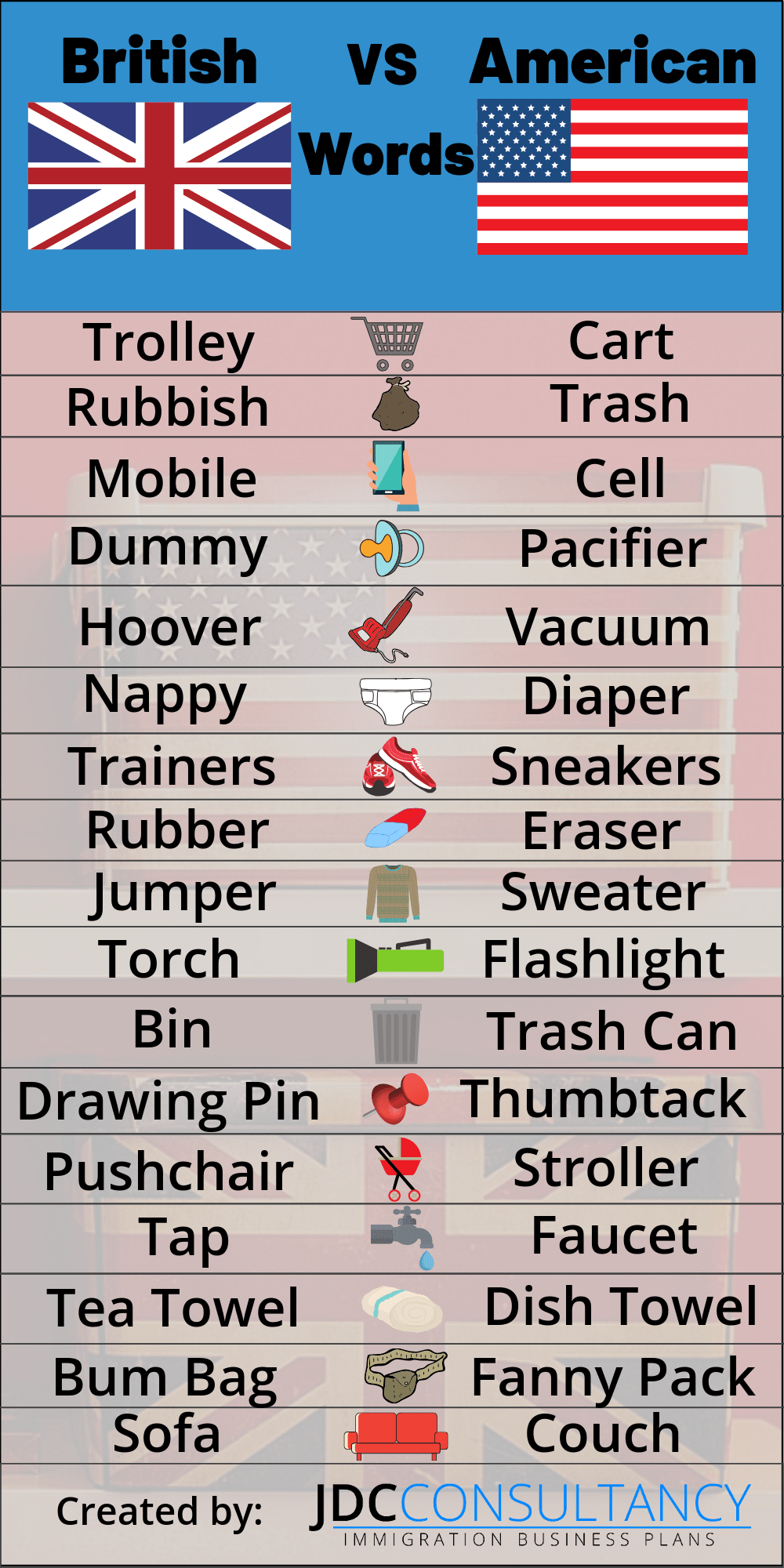
(Transportation in Britain has traditionally meant the punishment of criminals by deporting them to an overseas penal colony.)ĭifferences in terminology are especially obvious in the context of roads. In social and cultural life there are a lot differences as well.Īmericans refer to transportation and British people to transport. First of all the climate, landscape of the United States of America and the United Kingdom of Great Britain and Northern Ireland are completely different. Succotash (Блюдо из бобов и кукурузы у индейцев)Ĭhatauqua (Система внешкольного образования)īut in British English there are also such words which do not exist in American English as bobby, double-decker, abbey, Sir.īesides differences mentioned above there are a lot of differences in various spheres of life. The word dresser in British English denotes a kitchen board while in American English it denotes a toilet table.īecause of process of assimilation English language with languages of Indian tribes, with Spanish, with languages of Afro-Americans in USA there are many words in American English which do not exist in British English. The word faculty 22 in British English denotes division in universities while in American English it denotes university teachers. The word bug in British English denotes “клоп” while in American English it denotes beetle. The word r ubber in British English denotes a elastic or eraser while in American English it denotes condom. The word lumber in British English denotes a junk, rubbish, useless things while in American English it denotes logs, sawn goods, boards. The word corn in British English denotes a wheat, grain while in American English it denotes “кукуруза” There are many examples like this in both languages and knowing such peculiarities of both languages can afford to avoid different misunderstandings.īut there is another problem in these languages: the same word with the same pronunciation, spelling in one language denotes one thing but in another language it denotes quite different thing, sometimes it produces a comic effect. In American English this sentence will be like this:Ī man, having trouble with his truck, got out his wrench and lifted the hood to see what was the matter. For example:Ī man, having trouble with his lorry, got out his spanner and lifted the bonnet to see what was the matter.įor British people this sentence is quite normal while for Americans it is nonsense and there isn’t any meaning for them. Sometimes British and American people don’t understand each other, for one it is normal and for other it is outrageous. There are many differences in the names of foodstuffs, shop and clothing. Vocabulary differences are important, because our ignoring them may lead to unpleasant misunderstanding.

The British have retained the primary meaning of corn as ‘grain’, whereas Americans have changed it to ‘maize’ (the image many Americans have of ‘Ruth amid the alien corn’ being both anachronistic and ectopic). The British have retained the term fortnight, whereas Americans have lost it.

The British have retained an old use of reckon in the sense ‘think’ or ‘suppose’ in serious discourse, whereas that use in America is old-fashioned or rural, a comic marker of ‘hick’ talk. Vocabulary differences of American variant highly extensive on the strength of multiple borrowing from Spanish and Indian languages, what was not in British English. Rubber: (American English - condom, British English - tool used to erase pencil markings)Īmerican English - hood British English - bonnetĪmerican English – trunk British English - bootĪmerican English - truck British English - lorry Mean: (American English - angry, bad humored, British English - not generous, tight fisted) Some words mean different things in the two varieties for example:

Probably the major differences between British and American English lies in the choice of vocabulary.

Regional varieties of the English language.docĮnglish lexicology department qualification paper


 0 kommentar(er)
0 kommentar(er)
